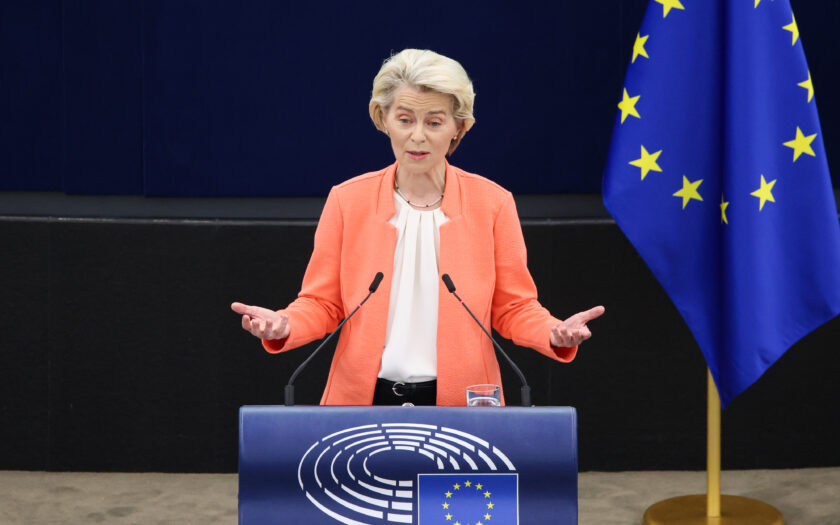EU-kommisjonen har invitert lokalsamfunn, forskere og andre interesserte parter til å sende inn oppdaterte opplysninger om ulv og medfølgende utfordringer.
Foranledningen er at Kommisjonen har igangsatt et arbeid for å endre ulvens beskyttelsesstatus i EU og å oppdatere det juridiske rammeverket for å innføre ytterligere fleksibilitet i rovdyrforvaltningen.
- Les også: EU-president ber medlemslandene bli hardere i klypa overfor ulven
- Les også: Kronikk: Et fortvilelsens rop fra europeiske beitebrukere
Folkeaksjonen har levert sitt innspill i høringsprosessen, og det kan du lese her:
Dear President von der Leyen,
Folkeaksjonen ny rovdyrpolitikk (The People’s Action for a New Policy on Large Carnivores) supports the proposal to change the protection status of wolves within the EU. We emphasize the principle that once a species’ population has reached and exceeded a favorable conservation status, it should no longer be classified as strictly protected.
Folkeaksjonen ny rovdyrpolitikk is a Norwegian non-governmental organization, and we represent our 8,000 members who have a strong interest in the welfare of stakeholders in the Norwegian «utmark,» hereafter referred to as «outfields.»
The management of large carnivores in Sweden and Finland significantly impacts the harvest of resources in the Norwegian outfields. Norway has a rich tradition of sustainable, extensive meat production through livestock grazing on outfield pastures and a substantial harvest of game meat. Our rich traditions of hunting and trapping also hold significant economic and regional political importance. Additionally, they serve as a vital source of natural resource utilization and know-how and make a significant contribution to public health and well-being.
Each summer, 2.2 million livestock animals graze in Norwegian outfields, including 1.9 million sheep and lambs, 250,000 cattle, as well as goats and horses that roam freely. This environmentally friendly and decentralized food production plays a vital role in Norway’s total preparedness.
Moreover, all land from central Norway northwards is designated as Sami reindeer herding territory. International law obligates the Norwegian state to safeguard the survival of its indigenous culture. Approximately 250,000 semi-domesticated reindeer graze year-round in extensive areas of Norway. Sami semi-domestic reindeer herding faces pressure from various sources, including land use changes, land loss, and climate change. When combined with an excessive predator burden, these negative factors seriously threaten Sami reindeer husbandry. Indigenous pastoralism represents a valuable contribution to Norway’s diverse range of resources in the outfields.
Continuous and continued harvest of outfield pastures plays a crucial role in Norwegian food security and preparedness. Harvesting the outfields is essential for preserving a culturally rich and diverse landscape with significant environmental qualities. Numerous vulnerable species and various protected landscapes directly depend on the continued active use of open land. In the northern regions of Norway, natural game production is limited, making semi-domesticated reindeer a significant part of large predators’ prey.
Norway shares a 2,366 km-long land border with Sweden and Finland. The substantial populations of large carnivores in Sweden and Finland pose a significant threat to traditional outfield harvests. The dispersal of wolves, brown bears, and wolverines, especially from Sweden, continually challenges the management of large carnivores in Norway. The existing strict management framework, as determined by the current implementation of The Species and Habitats Directive, complicates the effective management of multiple large carnivore populations for Swedish and Finnish authorities, negatively impacting Norwegian conditions due to the high mobility of these large predators.
On behalf of Folkeaksjonen ny rovdyrpolitikk,
Arve Sætra /s/
Chairman of the board
Åsmund Ystad /s/
Secretary
Bildet øverst i artikkelen viser EUs kommisjonspresident Ursula von der Leyen. Foto: Den europeiske union
